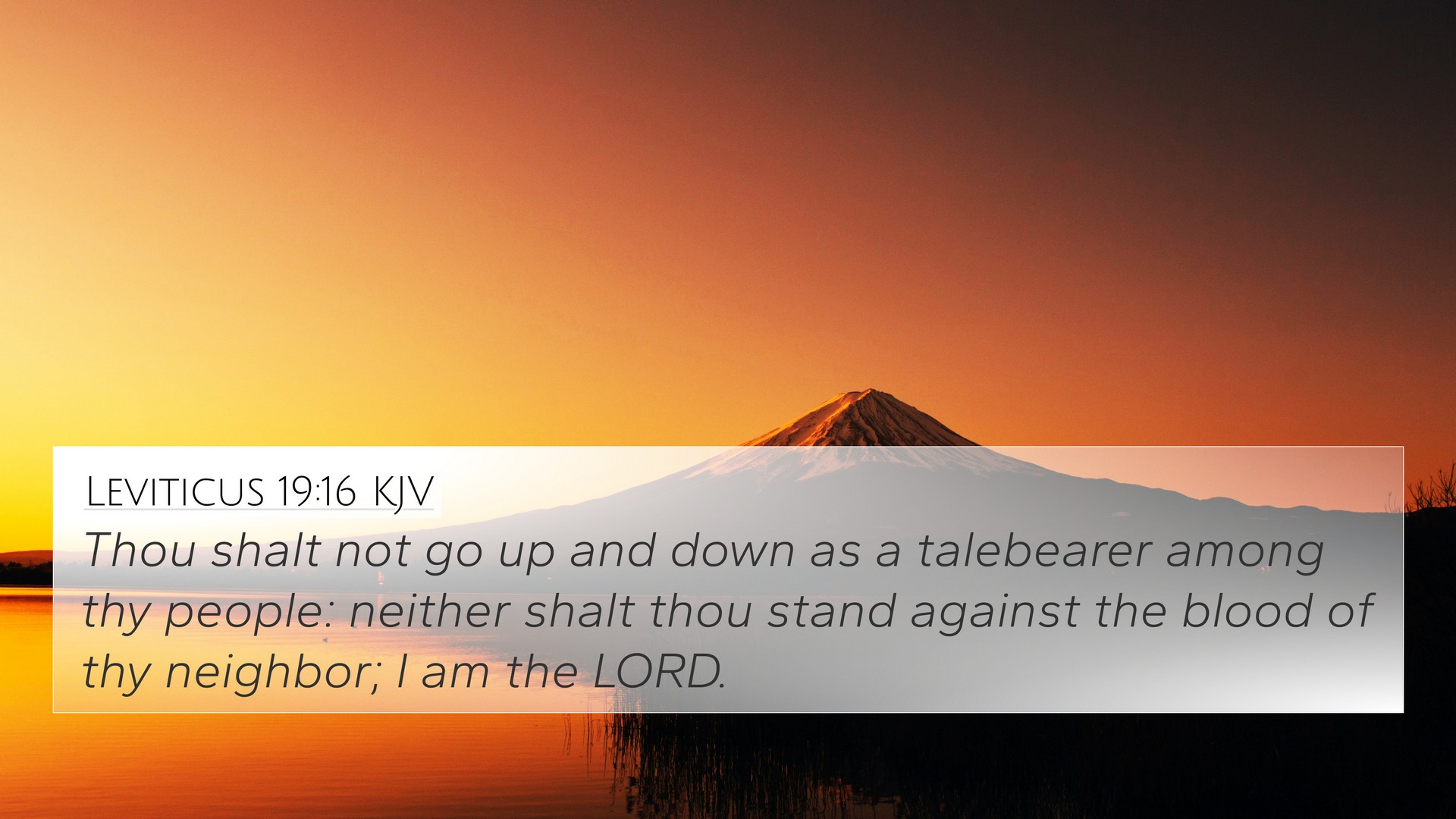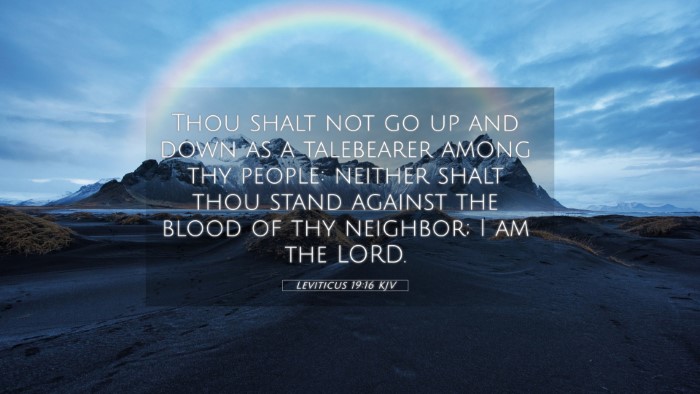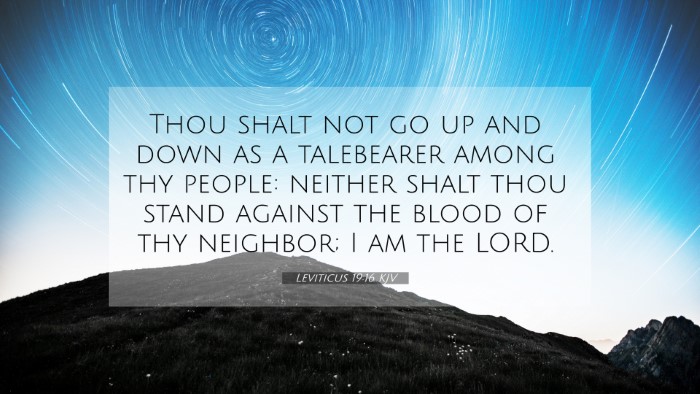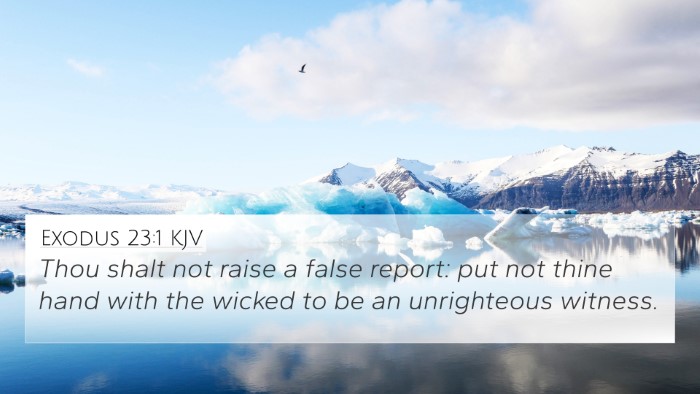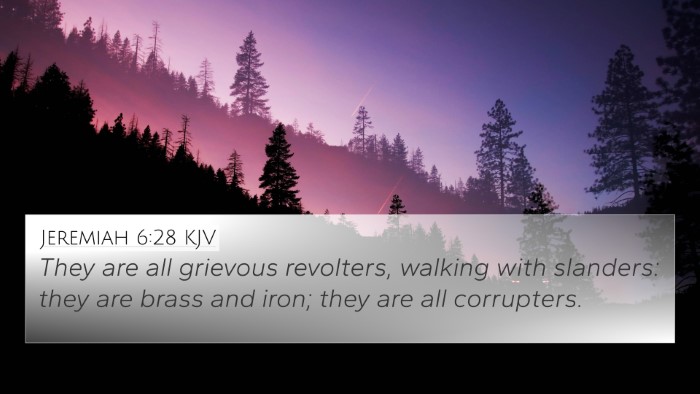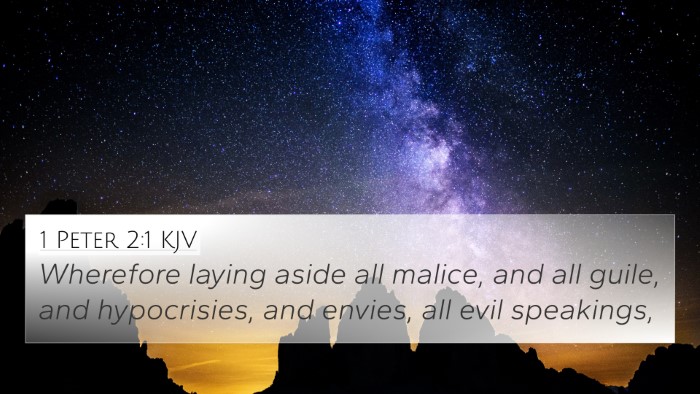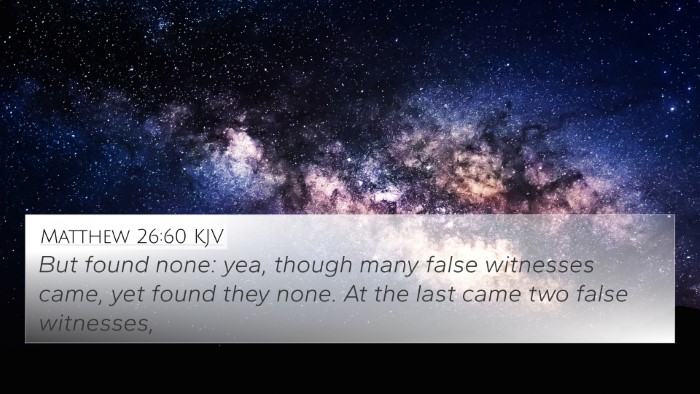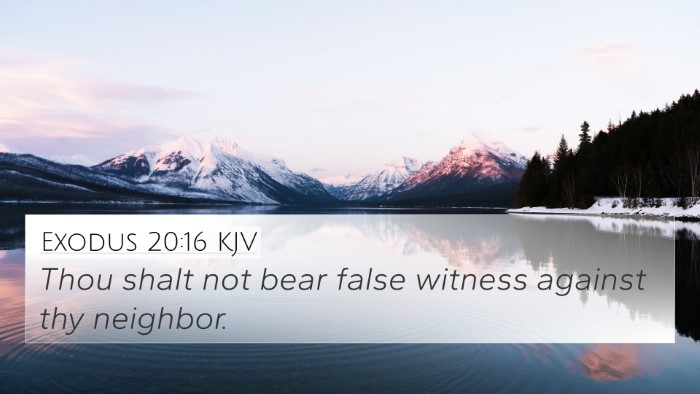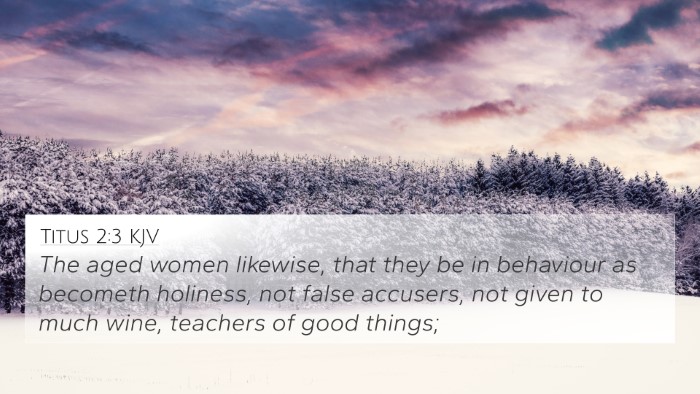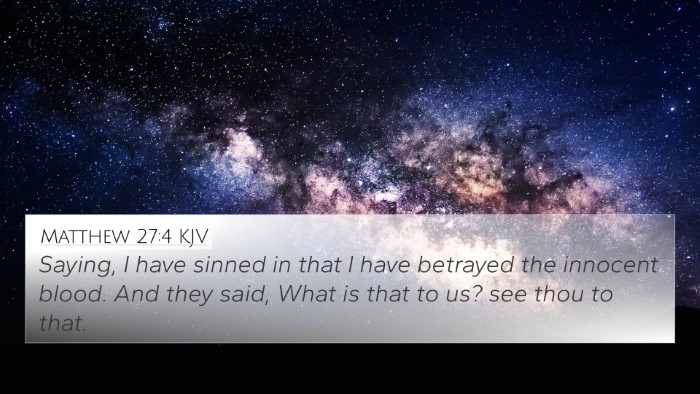Understanding Leviticus 19:16
Leviticus 19:16 states: "You shall not go about as a slanderer among your people; you shall not stand up against the life of your neighbor: I am the LORD." This verse addresses the serious issue of slander and the importance of preserving life and community integrity. Below are summaries of insights derived from public domain commentaries, notably from Matthew Henry, Albert Barnes, and Adam Clarke.
Exegesis and Context
This verse is part of the Holiness Code in Leviticus, which outlines ethical and moral guidelines meant to govern the behavior of the Israelites. The commandment is succinct but profound, calling attention to communal responsibility and ethical interactions.
Key Themes
- Prohibition of Slander: The verse warns against being a slanderer which disrupts social harmony and trust.
- Respect for Life: Standing against the life of a neighbor indicates the moral responsibility each person has for the well-being of others.
- Divine Authority: The concluding phrase, "I am the LORD," reinforces the weight of the command, indicating it is not merely a social norm but divine law.
Bible Verse Cross-References
Understanding Leviticus 19:16 can be enhanced by cross-referencing with other biblical passages that highlight similar principles:
- Exodus 20:16: "You shall not bear false witness against your neighbor." This reinforces the prohibition of slander and falsehood.
- Proverbs 25:18: "A man who bears false witness against his neighbor is like a war club, or a sword, or a sharp arrow." This emphasizes the destructive nature of slander.
- Matthew 22:39: "And a second is like it: You shall love your neighbor as yourself." This command highlights the ethical implications of respecting others.
- James 4:11: "Do not speak evil against one another, brothers." This New Testament verse echoes the prohibition against slander in a modern context.
- Leviticus 19:18: "You shall not take vengeance or bear a grudge against the sons of your own people, but you shall love your neighbor as yourself." This solidifies the command to maintain community harmony.
- Romans 13:9: "For the commandments, ‘You shall not commit adultery, you shall not murder, you shall not steal, you shall not covet,’ and any other commandment, are summed up in this word: ‘You shall love your neighbor as yourself.’" This connects the Old Testament laws with New Testament teachings on love.
- Galatians 5:14: "For the whole law is fulfilled in one word: ‘You shall love your neighbor as yourself.’" This reiterates the essence of the commandments concerning relationships.
Thematic Bible Verse Connections
Leviticus 19:16 serves as a key point of connection for various theological and ethical themes in the Bible:
- Community Integrity: The theme of maintaining integrity within a community links this verse to others emphasizing unity and love.
- Moral Responsibility: This verse's call to refrain from harmful speech aligns with the broader biblical narrative about caring for others.
- Divine Justice: The injunction against slander reflects God’s desire for justice and fairness in human interactions.
Comparative Bible Verse Analysis
Comparing Leviticus 19:16 with related verses can provide a fuller understanding of its implications:
- Slander vs. Truth: Proverbs 12:22 states, "Lying lips are an abomination to the LORD, but those who act faithfully are his delight." This complements the directive against slander.
- Neighborly Love: Exploring the connections between Leviticus 19:16 and the parable of the Good Samaritan (Luke 10:25-37) illustrates the practical application of loving one's neighbor.
Tools for Bible Cross-Referencing
To dive deeper into the analysis of scripture, utilizing various tools can aid in understanding biblical connections:
- Bible Concordance: This aids in locating every mention of a particular word or theme across scripture.
- Bible Reference Resources: Guides and commentaries provide context and cross-references for a comprehensive study.
- Cross-Reference Bible Study: Methods to study interconnected verses enhance understanding of themes and teachings.
- Comprehensive Bible Cross-Reference Materials: These materials provide structured pathways to navigate biblical themes and connections.
Conclusion
Leviticus 19:16 serves as a timeless reminder of the ethical responsibilities that individuals have toward one another. By cross-referencing this verse with others, readers can deepen their understanding of its significance in both a historical and contemporary context. This verse stands as a crucial part of the broader biblical narrative that emphasizes love, truth, and community integrity.
